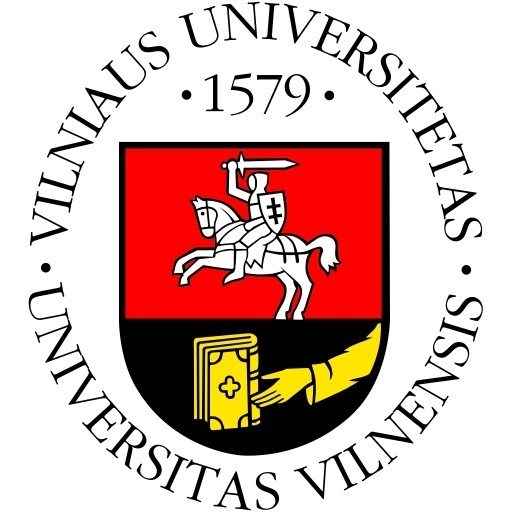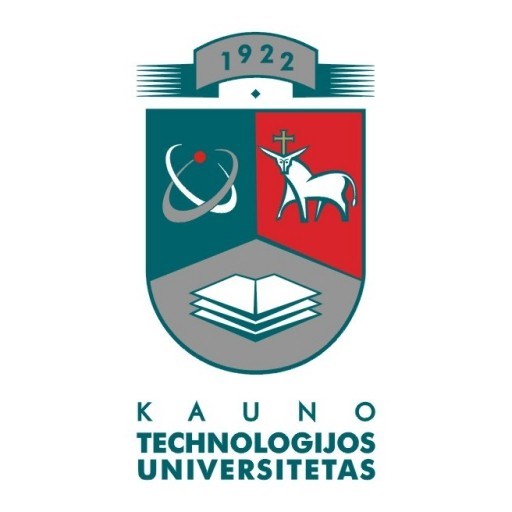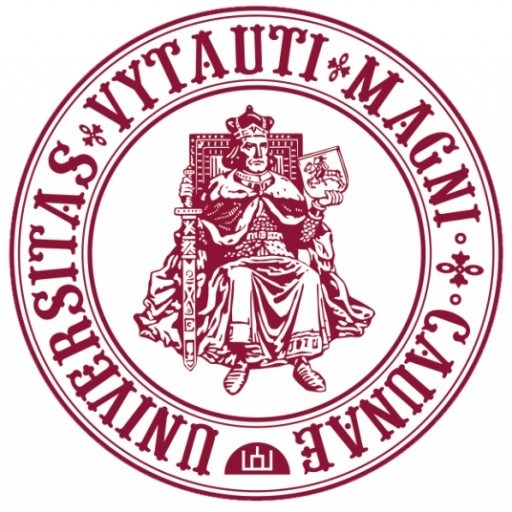Photos of university / #vilniusuniversity
The Bachelor’s Degree in Russian Philology at Vilnius University offers a comprehensive and in-depth study of the Russian language, literature, culture, and history. This program is designed for students who are passionate about the Russian language and want to gain a profound understanding of its nuances, development, and role in global cultural and literary contexts. Throughout the course of study, students will explore classical and modern Russian literature, learn the intricacies of Russian grammar and phonetics, and develop advanced language skills in reading, writing, speaking, and comprehension. The program emphasizes critical thinking, cultural awareness, and linguistic competence, preparing graduates for diverse career opportunities in education, translation, international relations, journalism, and cultural management.
Students will benefit from a solid foundation in the history and development of the Russian language, including its dialects and regional variations. They will also engage with major literary works from different periods, studying their themes, styles, and historical significance. The curriculum incorporates both theoretical and practical approaches, encouraging students to analyze texts critically and to apply their language skills in real-world contexts. Special attention is given to the study of Russian culture, traditions, and societal changes, enabling students to understand the complex links between language, identity, and culture.
Apart from language and literature, the program offers courses in linguistics, translation, and intercultural communication, equipping students with versatile skills relevant to the globalized world. The teaching methods include lectures, seminars, workshops, and language laboratories, fostering active participation and interactive learning. Students also have opportunities for internships and exchanges, enhancing their practical experience and global outlook.
Graduates of the Russian Philology program at Vilnius University will be well-prepared for careers in academia, education, diplomatic services, media, publishing, and cultural institutions. They will possess a high level of language proficiency, cultural literacy, and analytical abilities that are highly valued in various sectors. Overall, this program provides an enriching academic journey into one of the world’s most influential languages and cultures, fostering both personal growth and professional development.
The Bachelor's degree program in Russian Philology at Vilnius University offers a comprehensive curriculum designed to cultivate deep knowledge of the Russian language, literature, and cultural heritage. Throughout the course of study, students explore the history, evolution, and linguistics of Russian, developing advanced language skills necessary for effective communication, translation, and research. The program emphasizes the study of classical and contemporary Russian literature, enabling students to analyze literary texts within their historical and cultural contexts. Additionally, students engage with Russian folklore, linguistics, and phonetics, gaining a well-rounded understanding of the language's structure and usage.
Course modules include grammar, syntax, semantics, and phonology, providing a solid foundation for linguistic proficiency. Literature courses cover key authors and movements from ancient Rus to modern times, offering insights into the socio-political influences shaping Russian literary works. The program also integrates practical skills such as translation, interpretation, and editing, preparing graduates for diverse careers in academia, journalism, publishing, diplomacy, and translation services. Students have the opportunity to participate in language practice programs abroad, enhancing their linguistic competence and intercultural communication skills.
Research components encourage students to undertake independently or in group projects, fostering critical thinking and scholarly inquiry. The program collaborates with renowned Russian institutions and offers seminars led by experts in the field, ensuring students receive current and relevant education. Upon graduation, students will possess not only mastery of the Russian language but also a nuanced understanding of Russian cultural and literary traditions, enabling them to contribute meaningfully to academic, cultural, and professional fields related to Russian studies. The Bachelor’s degree in Russian Philology at Vilnius University is thus an excellent choice for those passionate about Russian language, culture, and literature, seeking to build a strong foundation for future academic or professional pursuits.
The Vilnius University Bachelor’s degree program in Russian Philology requires applicants to possess a secondary education certificate confirming completion of secondary schooling. Prospective students must demonstrate a sufficient level of proficiency in the Russian language, typically evidenced through standardized language tests or prior academic achievements in Russian language courses. Candidates are expected to submit a completed application form, along with high school transcripts, a motivation letter or personal statement outlining their interest in the field of Russian philology, and any relevant certificates or awards. Additionally, an interview or entrance examination may be conducted to assess language skills, linguistic knowledge, and motivation. The program emphasizes a comprehensive curriculum that includes foundational courses in Russian language, literature, and linguistics, as well as specialized studies in Russian culture, history, and translation techniques. Students are required to complete a certain number of credits in core disciplines, participate in seminars, and engage in independent research activities. Practical training components, such as internships or language practice in Russian-speaking environments, are also integral to the program. To successfully graduate, students must pass all coursework assessments, including written exams, oral presentations, and research projects. The program aims to develop advanced language proficiency, critical analytical skills, and a deep understanding of Russian literary and cultural contexts, preparing graduates for careers in education, translation, journalism, or cultural diplomacy. The duration of the program is typically four years for a full-time bachelor's degree, with opportunities for internships and international exchanges to enhance linguistic and cultural competence.
Explore our funding opportunities. These includes state scholarships and mobility scholarships. Check your eligibility today.
State Funded Places for Bachelor Students
Citizens of countries of the European Union (EU) or European Economic Area (EEA), persons (non-EU/EEA) granted a right of permanent residence in the Republic of Lithuania, children, grandchildren and great-grandchildren of the Diaspora and people of Lithuanian origin can apply for the State Funded Place in the programme.
For more information, please follow the link or contact us by e-mail ask@vu.lt.
Scholarships for Integrated Studies
A monthly scholarship is offered for the nationals of Ukraine, the Republic of Belarus, the Republic of Georgia, Republic of Armenia, the Republic of Azerbaijan, the Republic of Moldova, Japan, the People's Republic of China, the Republic of Korea, the State of Israel and foreign citizens of Lithuanian origin (10 grants altogether).
Read about conditions and application procedure here.
For more information, please contact by e-mail or phone +370 5 261 0592.
Financial Support for Outgoing mobility for Vilnius University Students
Full-time students of Vilnius University have an opportunity to receive financial support of free tuition for exchange studies.
Explore exchange possibilities for Vilnius University degree students here
For more information, please contact trs@cr.vu.lt.
State Scholarship for the Lithuanian Language and Culture Courses
Education Exchanges Support Foundation takes pleasure in offering Lithuanian state scholarships for students, lecturers and researchers of foreign countries to attend Lithuanian language and culture courses.
The Bachelor's degree in Russian Philology at Vilnius University offers students a comprehensive study of the Russian language, its literature, and cultural history. This programme is designed to equip students with advanced language skills, critical understanding of literary texts, and insights into the linguistic and cultural diversity of the Russian-speaking world. Throughout the programme, students explore various periods of Russian literary history, from classical authors to contemporary writers, enabling a thorough understanding of the evolution of Russian literature and language. The curriculum emphasizes developing proficiency in reading, writing, speaking, and comprehension in Russian, alongside acquiring knowledge of linguistic theories and methodologies.
Students also gain skills in analyzing texts, understanding linguistic structures, and interpreting cultural and historical contexts. The programme traditionally includes courses in syntax, phonetics, semantics, and stylistics, along with modules on Russian culture, history, and society. Additionally, students have opportunities to engage in translation practice, academic writing, and research projects that deepen their understanding of the discipline.
The programme often encourages international mobility, offering exchange opportunities with partner universities in Russia and other countries, allowing students to immerse themselves in Russian language environments. Graduates of the programme are prepared for careers in teaching, translation, journalism, publishing, cultural management, and further academic research. The degree also serves as a solid foundation for graduate studies in Russian studies, linguistics, or related disciplines.
Vilnius University’s Department of Philology, renowned for its strong academic tradition and experienced faculty, supports students with modern teaching methods, research facilities, and access to extensive linguistic and literary resources. The programme aims to foster not only language proficiency but also intercultural competence and critical thinking skills, preparing graduates to operate professionally within Russian-speaking environments and international contexts.



